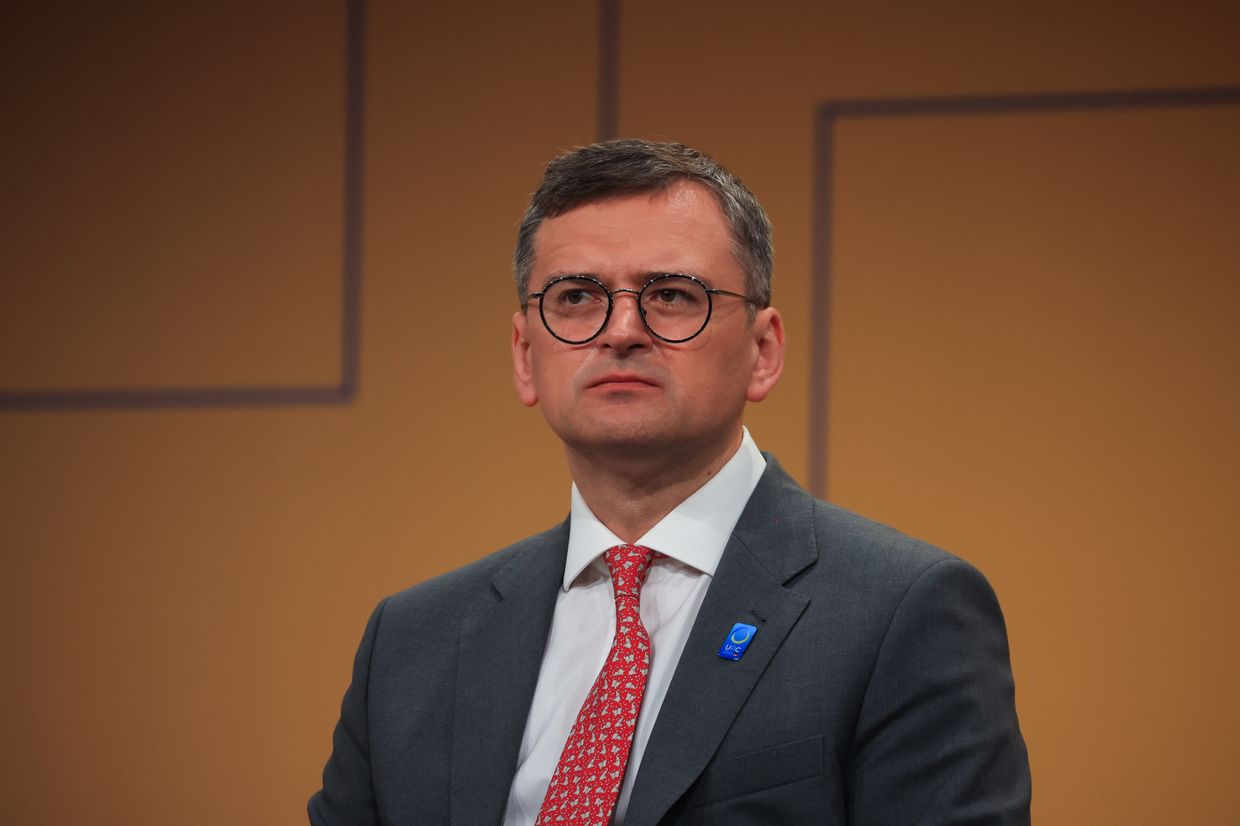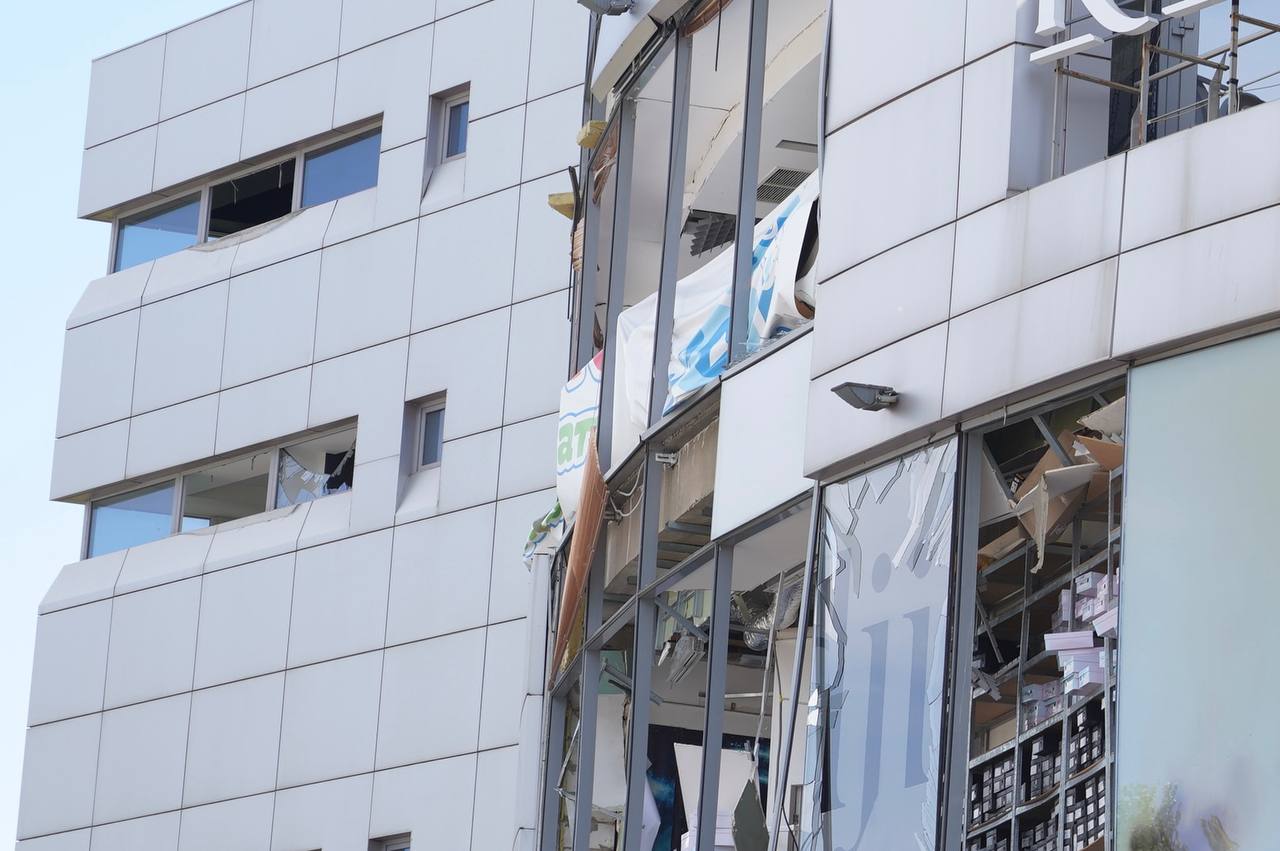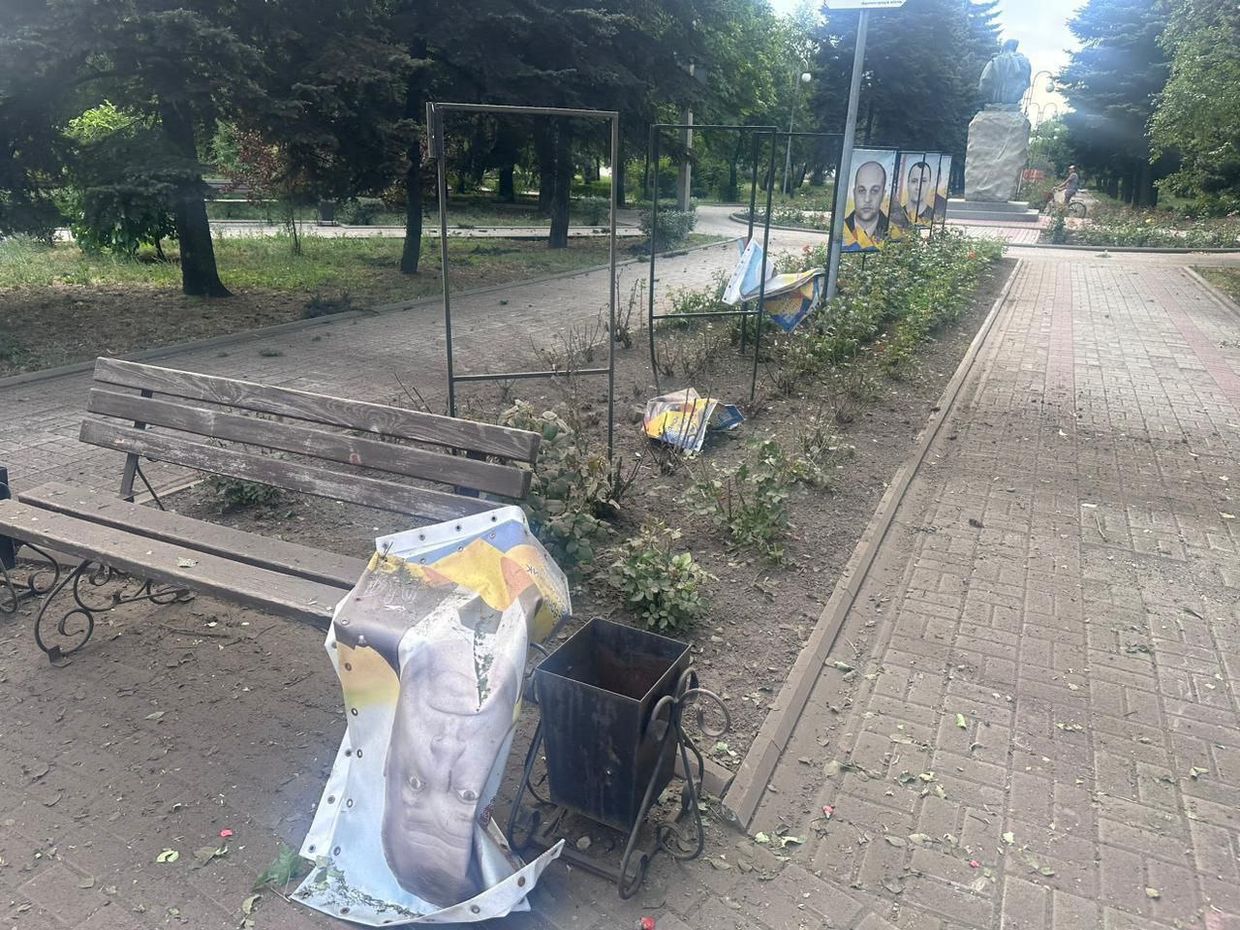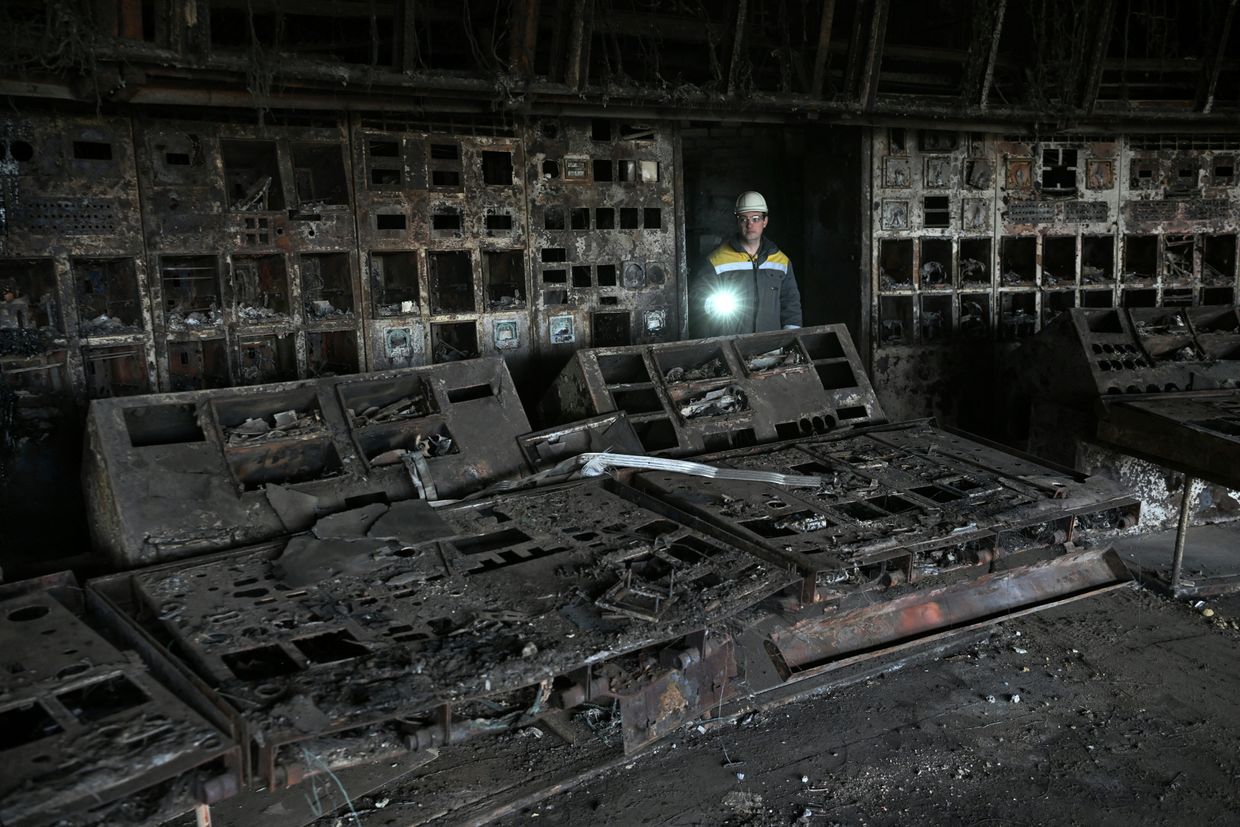Ukraine war latest: Ukraine withdraws from eastern Chasiv Yar neighborhood, military says

Key developments on July 4:
- Ukraine withdraws from eastern Chasiv Yar neighborhood, military says
- Media: Orban to meet with Putin in Moscow following Kyiv visit
- 14 brigades underarmed, aid arriving too slowly, Zelensky comments on battlefield situation
- Russia attacks port facilities near Odesa, killing 1, injuring 7
- 97% of Russian missiles, drones, bombs hit civilian infrastructure, diplomat says
Ukrainian troops have withdrawn from the Kanal neighborhood of the embattled town of Chasiv Yar in Donetsk Oblast, said Nazar Voloshyn, the spokesperson for the Khortytsia group of forces, on state television on July 4.
The decision was made because defensive positions in the neighborhood were destroyed, and commanders agreed to withdraw to better-protected positions, Voloshyn said.
After capturing Avdiivka in February, Russian forces shifted their focus toward Chasiv Yar, an elevated town that potentially opens for Russia the way to further advances into Donetsk Oblast.
Voloshyn said in late June that Russian troops had been repelled from the Kanal neighborhood but that they had not given up their intention to make a breakthrough in the Chasiv Yar area.
Russian forces have ramped up their offensive in Donetsk Oblast, focusing one of their main efforts on Chasiv Yar.
Commander-in-Chief of Ukraine's Armed Forces Oleksandr Syrskyi said on July 2 that fighting had been particularly intense in recent weeks around the town of Toretsk, located some 25 kilometers (15 miles) south of Chasiv Yar.
Media: Orban to meet with Putin in Moscow following Kyiv visit
Hungarian Prime Minister Viktor Orban will visit Moscow to meet with Russian President Vladimir Putin on July 5, Radio Free Europe/Radio Liberty (RFE/RL) reported on July 4 citing an unnamed Hungarian government source.
Orban's trip may take place days after the first visit to Ukraine since the beginning of Russia's full-scale invasion. The Hungarian prime minister pushed a ceasefire proposal, which was rejected by President Volodymyr Zelensky.
According to the outlet's source, Orban will be accompanied by Hungarian Foreign Minister Peter Szijjarto, who visited Russia at least five times since the onset of the all-out war.
Budapest and Moscow are yet to make announcements on the visit.
Hungarian Prime Minister Viktor Orban will visit Moscow to meet with Russian President Vladimir Putin on July 5, Radio Free Europe/Radio Liberty (RFE/RL) reported on July 4 citing an unnamed Hungarian government source.
Orban's trip may take place days after the first visit to Ukraine since the beginning of Russia's full-scale invasion. The Hungarian prime minister pushed a ceasefire proposal, which was rejected by President Volodymyr Zelensky.
According to the outlet's source, Orban will be accompanied by Hungarian Foreign Minister Peter Szijjarto, who visited Russia at least five times since the onset of the all-out war.
Budapest and Moscow are yet to make announcements on the visit.
The visit may come five days into Hungary's rotating presidency of the Council of the European Union. Amid reports, European Union Council President Charles Michel said that the EU rotating presidency "has no mandate to engage with Russia on behalf of the EU."
"The European Council is clear: Russia is the aggressor, Ukraine is the victim. No discussions about Ukraine can take place without Ukraine," Michel wrote on X on July 4.
Budapest has repeatedly opposed Ukraine's accession to NATO and the EU, sanctions on Russia, undermined Western aid efforts for Ukraine, and maintained close relations with Moscow throughout the full-scale war.
Orban and Putin held talks in Beijing in October 2023 at the Belt and Road Forum. The Hungarian prime minister was the only leader from the European Union to attend the summit.
14 brigades underarmed, aid arriving too slowly, Zelensky comments on battlefield situation
Ukraine is grateful to Western partners for their support, but the pledged assistance is arriving too slowly, complicating the situation on the front lines, President Volodymyr Zelensky said in an interview with Bloomberg published on July 4.
"We have 14 brigades who do not have the necessary weapons that have already been approved and discussed," Zelensky said.
Washington, Kyiv's leading military donor, approved in April a long-expected $61-billion aid package after months of delays.
In spite of this, Russia has continued to pressure Ukraine along the front, launching a new offensive in Kharkiv Oblast and steadily pushing into a key town of Chasiv Yar in Donetsk Oblast.
"The (assistance) packages should arrive, but they are coming slowly," the president said, adding, "We are grateful to Congress for its support."
Zelensky said that, nonetheless, the situation cannot be described as a stalemate and that the current difficulties can be solved with appropriate tools, referring to foreign military aid.
The head of state said that, at the moment, it is not appropriate to talk about a Ukrainian counteroffensive as Kyiv must focus on protecting what it has. Any pushback against Russian forces will be possible once sufficient weapons arrive, he added.
Ukraine's 2023 counteroffensive has achieved only minimal results, while the subsequent Russian push utilized the lull in U.S. aid and led to the capture of the key front-line town of Avdiivka.
Ukraine managed to halt the Russian push into the northern part of Kharkiv Oblast, but the situation in the east remains difficult. Earlier on July 4, the military announced withdrawal from the Chasiv Yar's eastern neighborhood, Kanal.
Russia attacks port facilities near Odesa, killing 1, injuring 7
Russian troops attacked Odesa Oblast with a ballistic missile on July 4, killing one civilian and injuring at least seven others, Governor Oleh Kiper said.
Explosions were reported in the southern Ukrainian port city of Odesa after an air raid alert went off in the region, while the missile was launched in the direction of the nearby town of Chornomorsk, Ukraine's Air Force said.
The port infrastructure came under Russia's strike, Kiper said. The attack damaged port facilities and administrative premises, he added.
Odesa Oblast and other southern regions of Ukraine are regular targets of Russian missile and drone attacks.
Russia on May 1 launched ballistic missiles at Odesa, hitting a postal depot of Ukraine's largest privately-owned postal service, Nova Poshta.
The attack injured 14 people and destroyed 15.5 metric tons of shipments worth almost Hr 3 million ($76,000).
97% of Russian missiles, drones, bombs hit civilian infrastructure, diplomat says
Only 3% of Russian missiles, drones, and guided bombs hit military targets in Ukraine, while 97% have struck civilian infrastructure, Danylo Kubai, Ukraine's envoy to international organizations in Vienna, said on July 3, according to Ukrinform.
"In recent months, Russia has launched numerous attacks on Ukraine using missiles, drones, and artillery, killing dozens of civilians across the country," Kubai said during a meeting of the Organization for Security and Co-operation in Europe (OSCE), Ukrinform reported.
"Russia's massive air attacks have destroyed private and commercial buildings, hotels, schools, churches, hospitals, and numerous infrastructure facilities."
Kyiv has been calling on its partners to provide additional air defenses as Russia intensifies its strikes against cities and energy infrastructure.
Russia used more than 800 guided aerial bombs against Ukraine over the past week alone, targeting civilian infrastructure, according to President Volodymyr Zelensky.
"In the late 1980s, the loss of 15,000 troops in Afghanistan forced the Soviet leadership to admit defeat and withdraw its troops from the country, ending the 10-year war," Kubai said.
"By comparison, last June alone, the Russian armed forces lost more than 33,000 soldiers in Ukraine. However, the Kremlin regime, considered the heir to the Soviet leaders, remains convinced that the war must continue."
Kubai stressed that Ukraine remains determined to restore its sovereignty and territorial integrity within internationally recognized borders.
"Unfortunately, Russia's only response to all peace initiatives is to continue the war," the diplomat added.
Kubai also described Russia's methods of carrying out the war as those that "resemble the darkest pages of world history, which the civilized world hoped would never be repeated."
















